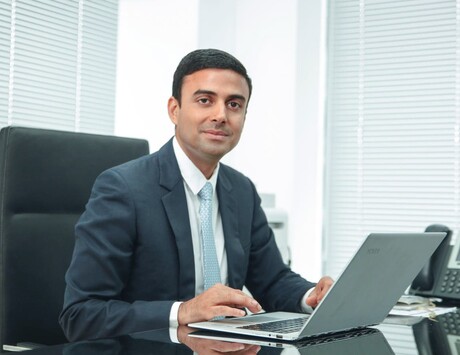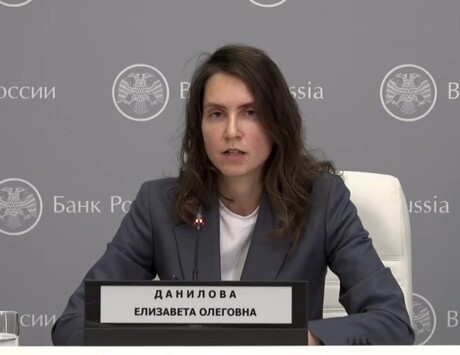Once, Alexander Lebedev was one of Russia's richest men, a former KGB agent who became known as "the spy who came in for the gold". He jetted off to safaris in Africa, bagged a brace of newspapers in Britain and attracted the cream of society to his fabulous parties.
Last week the 53-year-old mogul was forced to beg a Moscow judge for a week's leave of absence in London and Italy before facing the music for delivering the "punch heard around Russia". Public brawls are not uncommon in the republic; Lebedev's misfortune was that his televised fisticuffs in 2011 with a fellow businessman came to the attention of Vladimir Putin, then Russia's prime minister and now its president, who invoked the full rigour of the law.
Facing a maximum five-year sentence for "hooliganism motivated by political hatred" — similar to the charges used last year to jail members of the punk group Pussy Riot — the flamboyant oligarch has cited a "vendetta" by top Russian officials angry at his support for Novaya Gazeta, an investigative Russian newspaper that he part-owns with Mikhail Gorbachev, the last leader of the Soviet Union.
Thanks, perhaps, to written character references by his friends in the West, including the actors John Malkovich, Keira Knightley, Kevin Spacey and Hugh Grant — he is "admired by many here in the UK", Grant wrote — Lebedev was released from his confinement in the Russian capital and told to return this week. By his account he merely reacted to an antagonist's threats of violence during a studio discussion. The case was adjourned until May 20.
In London he savoured his freedom last Wednesday at the family home in the grounds of Hampton Court Palace in southwest London. He first visited the city in 1988 as a KGB agent masquerading as a commercial attaché. "The job was actually reading everything [in newspapers] and then informing — the same as actual diplomats do," he once recalled. "It was a fairly boring desk job." He claimed that he had never indulged in dirty tricks — "all operations like that were cancelled under [Nikita] Khrushchev" — or recruited traitors.
His sojourn in Britain last week also brought to mind one of the most glittering parties in recent memory. By 2006 Lebedev was the 194th richest person in the world, worth about $3.5 billion (£2.3 billion at today's rates), according to Forbes magazine. That summer, strewing money around like the crop of his potato farm in Tula province — the largest in Europe, he is fond of boasting — he spent more than £1m on a "Russian midsummer fantasy" at the Northamptonshire estate where Diana, Princess of Wales grew up and is buried.
The 400 guests, who included Orlando Bloom, Elle Macpherson, Salman Rushdie and Tamara Mellon, were treated to jellied borscht and caviar while being serenaded by the Black Eyed Peas. The U2 singer Bono appeared by video link from Dublin.
Soon he was a British press baron: in 2009 he bought 75% of the London Evening Standard for £1 and the following year he swallowed The Independent and The Independent on Sunday for the same sum. When they were handed to his son Evgeny, 33, many assumed they were baubles for a youth who had earned a reputation on the London party circuit as a playboy, squiring Geri Halliwell of the Spice Girls and the actress Joely Richardson. The Standard, reengineered as a free newspaper, is in the black and the i newspaper, a cut-price spin-off of The Independent, has gained readers, even if its parent newspapers are not prospering — despite the £80m poured into them.
Father and son are in many ways opposites. White-haired and pale, Alexander reminded one interviewer of a fox — "an almost hyperkinetic conversationalist who flits between subjects with vertiginous ease". His attire of blue jeans, black tailcoat and trainers without laces proclaims youth and trendiness, not always convincingly.
A Moscow writer who has known him for many years said: "I've always felt that he's a bit of a poseur who loves media attention. With him, it's all about democracy and transparency, which I'm sure he believes, but he comes on rather strong. Ask him what he wanted to be as a child and he'll say he just wanted to be free. That's bullshit.
"He's not taken seriously as an opposition figure: he hasn't been to the big demos over the past year. To his enormous credit, he coowns the only paper in Russia that does investigative reporting. But he's really a maverick member of the elite who used to have powerful friends. He fell out with them and now he's on his own."
At first sight, Lebedev Jr evokes the Russian dandy abroad, sporting jaunty outfits and a neatly trimmed black beard, but interviewers have detected an earnest quality that borders on humility. He has a weakness for his pet wolf Boris, besides collecting restaurants and boutique hotels. He also has a weakness for appearing in his newspapers. His business interests include the Sake no Hana restaurant in St James's Street, central London and the Palazzo Terranova hotel in Umbria, where Evgeny was expected to have celebrated his birthday with his father last week.
Evgeny discovered that his father was a spy rather than a diplomat at the age of 11 when he found some medals in a drawer. "I was sworn to secrecy, but carried the secret with pride," he recalled.
Lebedev Sr had seemed more cut out for economics, which he studied at the elite Moscow State Institute of International Relations after going to some of the best Soviet schools. Although a professed anti-communist, he saw the foreign and domestic intelligence service as an attractive proposition. "He saw it as an opportunity to travel, to progress and even to argue for change from within," his son recounted. Not all the family, who came from Moscow's scientific elite, approved.
Evgeny spent his early years in a prestigious Moscow house "filled with the ghosts of Soviet tyranny". The former party leader Khrushchev had lived nearby, and the Stalinist politician Vyacheslav Molotov was a neighbour. But the family was not well-heeled: his father drove a Lada that "broke down all the time", and his mother, Natalia, a microbiologist, would "queue for hours" for the most basic goods.
The boy was eight when the KGB posted his father to London. He loved everything about the country — "even the weather" — and was happy to go to St Barnabas and St Philip's primary school in Kensington.
After the Soviet Union's collapse, Alexander resigned as a KGB lieutenant-colonel in 1992 and began launching business enterprises. As he tells it, he bought distressed debt and receivables from Gazprom, the state gas company, sold them, lost all his money in the rouble crash of 1998 and then made it all back again. He bought the National Reserve Bank, which grew into one of Russia's biggest. He owned stakes in Aeroflot, the Russian national airline, and significant parts of Gazprom.
Then it all began to go wrong. In 2008 the Moskovsky Korrespondent, the tycoon's liberal newspaper, reported an unsubstantiated rumour that Putin had secretly divorced his wife and was planning to marry an Olympic gymnast half his age. In response to Putin's fury, Lebedev shut the paper.
A raid on his bank by armed law enforcement officers three years ago was followed by the embarrassment of a sex tape showing him in bed with two women. In January he told The Sunday Times it was a KGB-style smear campaign: "The aim is to strip me of my business and drive me out of Russia. There are various people behind this. Some are after my assets; others are out to get me because I have publicly accused them of corruption."
This year he fell off the Forbes billionaire list, which estimated his net worth at $1.1bn in 2012. He tweeted: "Such a relief! Soon will become a normal Homo sapiens." No doubt his sense of humour will be tested further in the coming weeks.



